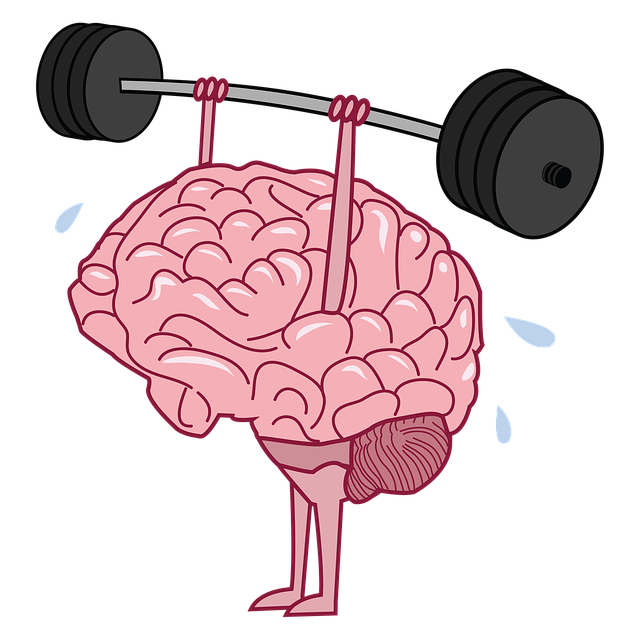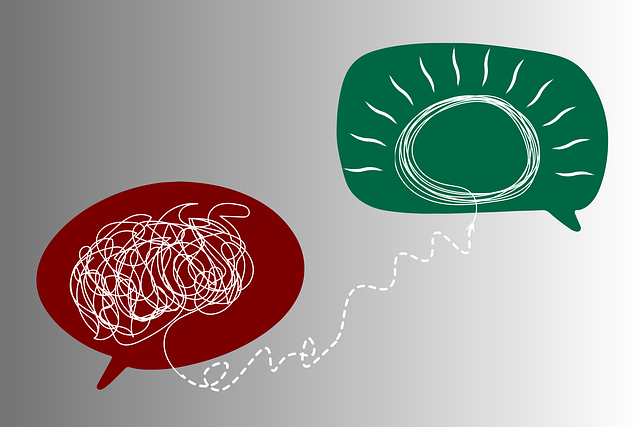Denver Interpersonal Issues Therapy (DIIT) employs RFM (Resources, Fortitudes, Weaknesses Modeling) to empower individuals in navigating interpersonal challenges by identifying emotional regulation resources and internal strengths. This personalized approach combines targeted interventions like mindfulness meditation, art therapy, and writing exercises tailored to specific struggles such as anxiety, depression, or trauma. Integrating RFM with DIIT improves patient outcomes, with healthcare providers encouraged to implement burnout prevention strategies and empathy-building activities. Success is measured through qualitative and quantitative assessments, guiding data-driven resilience-building exercises like mindfulness meditation and workshops for positive thinking, ensuring a dynamic and responsive therapy program focused on enhancing mental well-being and emotional resilience.
“Discover how Denver Interpersonal Issues Therapy (DIIT) is revolutionizing mental health support with its innovative approach—the RFM (Resilience, Flexibility, and Mastery) model. This article explores the power of RFM in fostering resilience, offering a practical guide for therapists. From understanding the core principles to implementing effective exercises in clinical settings, we uncover strategies to enhance therapy outcomes. Learn how to measure success and adapt the RFM method, providing clients with valuable tools for navigating life’s challenges.”
- Understanding RFM and its Role in Denver Interpersonal Issues Therapy
- Identifying Resilience Building Exercises for Effective Therapy
- Practical Implementation Strategies for Clinical Settings
- Measuring Success and Adjusting the RFM Approach
Understanding RFM and its Role in Denver Interpersonal Issues Therapy

In Denver Interpersonal Issues Therapy (DIIT), RFM (Resources, Fortitudes, and Weaknesses Modeling) serves as a robust framework for understanding and addressing interpersonal challenges. This approach helps individuals identify their emotional regulation tools, or resources, that can enhance coping mechanisms. By recognizing these internal strengths, clients in DIIT gain a deeper awareness of their ability to navigate difficult situations, fostering improved self-care practices and overall resilience building.
Through RFM modeling, therapists facilitate a process where individuals not only acknowledge their weak points but also discover or develop fortitudes—mental and emotional strategies for managing stress and adversity. This proactive approach to emotional regulation is particularly beneficial in DIIT, aiming to equip clients with practical tools to confront interpersonal issues head-on, ultimately leading to personal growth and enhanced well-being.
Identifying Resilience Building Exercises for Effective Therapy

When it comes to selecting resilience-building exercises for effective therapy, a tailored approach is key. At our Denver interpersonal issues therapy center, we recognize that every individual has unique needs and challenges. Therefore, we don’t adopt a one-size-fits-all strategy. Instead, therapists carefully evaluate each client’s specific areas of struggle, such as anxiety, depression, or trauma, to identify exercises that will foster inner strength development and coping skills.
For instance, stress reduction methods like mindfulness meditation and deep breathing exercises can be powerful tools for managing overwhelming emotions. Additionally, creative outlets like art therapy or writing exercises can provide healthy avenues for processing and expressing complex feelings. By integrating these activities into therapeutic sessions, we empower clients to develop robust coping mechanisms and enhance their overall resilience.
Practical Implementation Strategies for Clinical Settings

In clinical settings, effectively implementing RFM (Resilience, Flexibility, and Mastery) exercises alongside Denver Interpersonal Issues Therapy can significantly enhance patient outcomes. Healthcare providers play a crucial role in fostering resilience among individuals struggling with interpersonal issues. Practical strategies include integrating Burnout Prevention Strategies for Healthcare Providers into daily routines. Encouraging patients to engage in Empathy Building Strategies through role-playing scenarios or group discussions can deepen their understanding of others’ perspectives, thereby strengthening their relationships.
To promote mental wellness, introducing Mental Wellness Journaling Exercises as a supplementary practice has shown promise. Patients can reflect on their emotions and experiences, track progress over time, and identify triggers or patterns contributing to interpersonal challenges. This introspective process empowers individuals to take proactive measures in managing stress and improving communication skills, ultimately bolstering their resilience and interpersonal connections.
Measuring Success and Adjusting the RFM Approach

Measuring success is a critical component of any therapeutic approach, including RFM. At Denver Interpersonal Issues Therapy, we utilize various qualitative and quantitative methods to assess progress. This involves regular check-ins with clients to gauge their emotional well-being, stress levels, and overall satisfaction with the program. By collecting feedback and tracking key performance indicators (KPIs), we can tailor our resilience building exercises to meet individual needs. For instance, Mindfulness Meditation sessions are evaluated for their impact on reducing anxiety symptoms, while Mind Over Matter Principles workshops aim to foster positive thinking and improve coping mechanisms.
Adjustments to the RFM approach are made based on these insights. If certain exercises prove particularly effective in treating specific Denver interpersonal issues or preventing depression, we integrate them more heavily into the curriculum. Conversely, if an activity is not yielding desired results, it may be modified or replaced with alternatives that better resonate with clients. This dynamic, data-driven approach ensures that our resilience building program remains responsive to the evolving needs of our clients, enhancing its overall effectiveness in fostering mental well-being and emotional resilience.
Denver Interpersonal Issues Therapy (DIIT) has recognized the power of Resilience-focused Measurement (RFM) in enhancing treatment outcomes. By integrating specific resilience-building exercises tailored to individual needs, therapists can facilitate clients’ growth and coping mechanisms. The practical implementation strategies outlined in this article provide a roadmap for clinical settings, enabling professionals to effectively incorporate RFM into their practice. Continuous measurement and adjustment of the RFM approach ensure that therapy remains dynamic and responsive to clients’ evolving needs, ultimately fostering more resilient individuals within the community.














